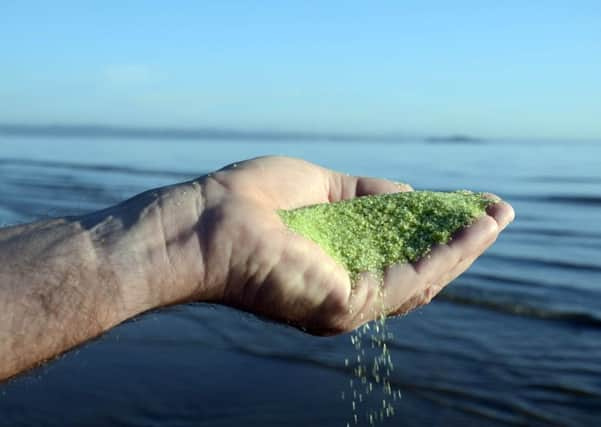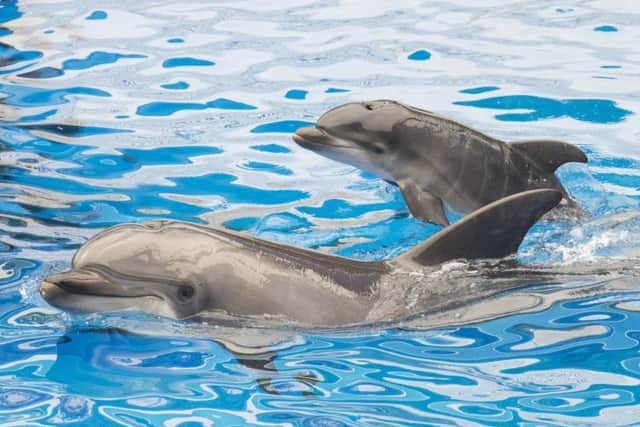How Scotland's empty wine bottles help create clean water


From allowing dolphins to swim in the cleanest of environments to bringing disease-free drinking water to six million people in India, an innovative water filter created in a plant outside Edinburgh is putting Scotland’s ‘empties’ to remarkable use.
Dryden Aqua in Bonnyrigg, Midlothian, was set up by marine biologist Dr Howard Dryden to create the cleanest possible water using his filtration system made from tiny glass particles.
Advertisement
Hide AdAdvertisement
Hide AdAfter arriving at the plant, the bottles, collected from local authorities around the country, are sorted, blasted with water and sterilised at temperatures of up to 1,000C before being broken down into tiny particles in a high pressure cyclone.


It is these tiny particles - each around the size of a grain of sand - that are used in the water filtration process.
Dr Dryden came up with his idea after researching water quality used in salmon farming, where sand was typically used as the filter.
He said: “I found that sand didn’t give a really good water quality.


“Basically, what we have done is reinvent sand and how it works as a water filter. Sand is used as a raw material to make glass. I thought ‘why not use glass to make sand’.“
This Activated Filter Material (AFM) is considered a more effective filter than sand given its surface is resistant to bacteria with the particles unable to clump together.
Sea World in San Diego and the Dubai Mall Aquarium are amongst those who use the AFM with around 200,000 swimming pools across Europe, including around 200 in Scotland, using his product to cut trichloramine, a by-product of chlorine, which has the potential to harm respiratory health.
In India, the AFM is to be used to remove arsenic and other pathogens from drinking water supplies in West Bengal. Calcutta and Pune with plans to give small companies the filter design for free so they can set up their own sustainable businesses.
Advertisement
Hide AdAdvertisement
Hide Ad